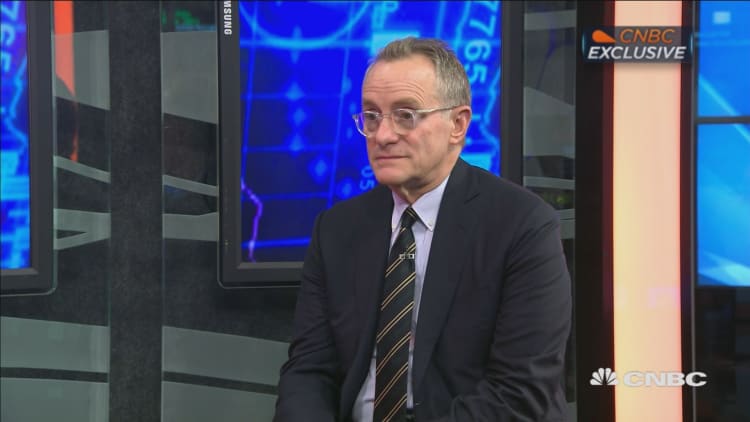
The U.S. economy doesn't need any rate cuts, billionaire investor and Oaktree Capital's co-chairman Howard Marks told CNBC, predicting there won't be a recession for another two years.
"If your goal is to make sure we don't have a recession this year, next year ... (then) maybe you want to cut rates," Marks told CNBC's Tanvir Gill on Thursday.
But the U.S. economy is doing "pretty well," Marks said, with sources of strength which could be mostly attributed to the American consumer.
When asked if a recession was about to his the U.S., he replied: "It doesn't feel to me like a recession is imminent. I don't think we're going to go 5 years without it, so some time two years from now — something like that."
Central banks usually cut rates to get the economy going, he said, citing that the Fed's rate cuts 10 years ago helped stall global financial crisis.
"Ten years later, do you want to cut rates to extend an economic expansion which is the longest in history?" he asked. "I question whether that's a legitimate goal."
In July, the U.S. Fed cut rates for the first time since 2008, when the economy was going through the great financial crisis. July also marked the 121st month of the economic expansion since the 2008 recession, making it the longest run on record going back to 1854.
The expansion keeps trucking along, getting its latest boost from the Trump tax cut of 2018 along with an easing in business regulations, according to economists.
This week, the Fed cut interest rates again for the second time this year, despite some members voting against the cuts. Their concerns underscore a dilemma the central bank faces: While economic data in the U.S. has been stronger than expected, the Fed is also trying to trim rates in case of a slowdown triggered by external shocks, such as trade wars or Brexit.
But the work of preventing the next recession from happening isn't the Fed's job, Marks said. Traditionally, the Fed's role was to control inflation, and in the past few decades, it was to support growth so that jobs would be created, he pointed out.
"But this idea of preventing the next recession is neither of those two things, and it is a job that the Fed seems to have taken on now," Marks said.
As it stands, he said, while there are pockets of weakness in the U.S. economy — such as the manufacturing sector which has been hit by the U.S.-China trade war — it is still the "best performing in the world."
"So I'm happy with it, and I don't think I'd be stimulating it at this point in time," Marks stressed.
— CNBC's Yun Li and Patti Domm contributed to this report.


